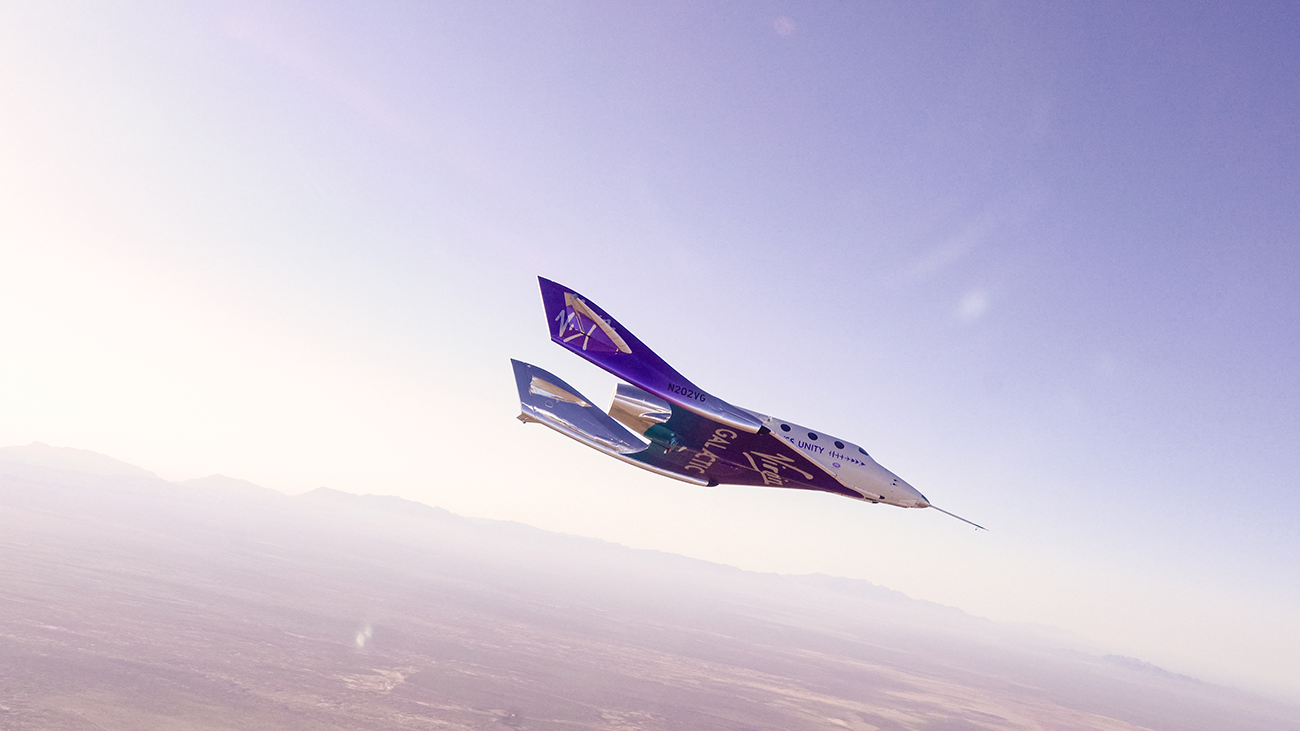
Virgin Galactic's SpaceShipTwo vehicle will carry four passengers on its inaugural commercial flight Thursday (June 29). But how many people can the suborbital space plane actually fit?
SpaceShipTwo is designed for space tourism. The 60-foot-long (18.3 meters) spacecraft can carry up to six passengers, along with the two pilots who fly it. In addition, two pilots fly SpaceShipTwo's carrier aircraft, WhiteKnightTwo, which drops the space plane at an altitude of about 50,000 feet (15,000 m). The SpaceShipTwo and WhiteKnightTwo vehicles flying on Thursday are called VSS Unity and VMS Eve, respectively.
Four passengers, including Virgin Galactic's Colin Bennett and a trio from the Italian Air Force and the nation's National Research Council, will fly on Thursday's mission, which Virgin Galactic calls Galactic 01. The company has said that hundreds of people have already put down deposits for their spot on future suborbital flights.
The Galactic 01 mission is scheduled to take off from Spaceport America in New Mexico sometime after 11 a.m. EDT (1600 GMT, or 9 a.m. local time in New Mexico) on Thursday. A livestream of the flight will run here at Space.com, courtesy of Virgin Galactic.
After VMS Eve drops VSS Unity, the space plane will fire its onboard rocket motor to power itself to suborbital space. The Galactic 01 crewmembers will experience a few minutes of weightlessness, and a chance to perform 13 research experiments, before heading back down to Earth. They're expected to touch down at Spaceport America about 90 minutes after liftoff.
The four-passenger crew includes Pantaleone Carlucci, an engineer at the National Research Council of Italy; Col. Walter Villadei of the Italian Air Force, who is training for a future mission on the International Space Station; Lt. Col. Angelo Landolfi, a physician with the Italian Air Force; and Colin Bennett, an astronaut instructor at Virgin Galactic.
Mike Masucci and Nicola Pecile will pilot VSS Unity, while Kelly Latimer will serve as commander of VMS Eve alongside pilot Jameel Janjua.
Up to six passengers can travel comfortably on Unity, with seats that recline to help minimize g-forces during the boost and re-entry phases of each flight. Once the vehicle has reached suborbital space, passengers can explore the cabin freely and fully and take in awe-inspiring views from 12 large windows located throughout the cabin.
VSS Unity is designed to carry both people and payloads to suborbital space and back. During the Galactic 01 mission, the cabin of Unity will be transformed into a suborbital science lab for the crew to collect data for scientific investigations aimed at studying fluid dynamics and sustainable materials for medical applications.







